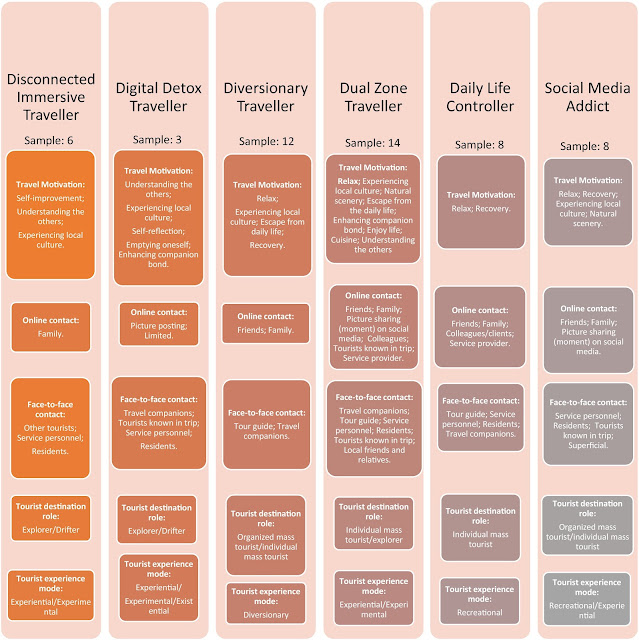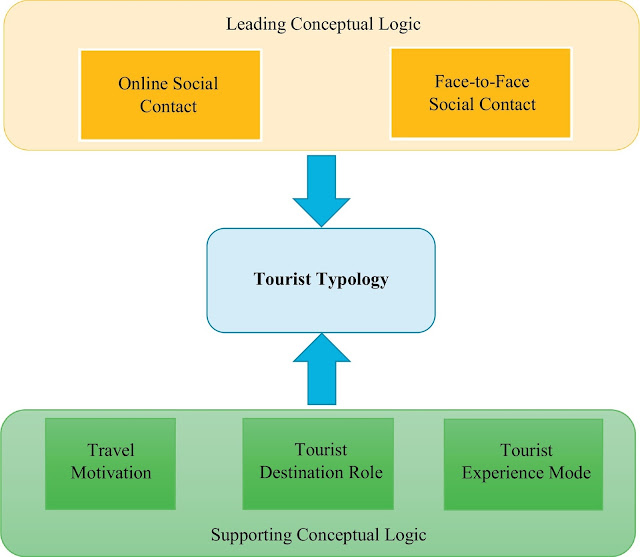The big news this week was the defeat of the Government’s wishes to prevent an amendment which aims to hinder the prorogation of Parliament. Chris Skidmore made what may be his last speech as Universities Minister. Few HE reports were issued and the main thrust this week focussing on skills within industry including apprenticeships and the launch of the national retraining scheme. Have a lovely weekend, refuel and shore yourself up ready for Parliamentary changes next week!
Parliament
When we write next week we’ll have a new Government with (probably) a swift Ministerial reshuffle. The media has few hints about who will get what job, aside from some key Conservatives jostling for ministerial position.
Hints include:
- Matt Hancock challenging Boris’ stance on energy drinks – Boris wants to remove the sugar tax, Matt want to ban the drinks. Is it enough to boot him out of the Health Secretary role despite his declaring for Boris when he removed himself from the leadership race?
- Gove (Environment Secretary) has stated Boris would make a ‘great Prime Minister’ and on both Boris and rival Hunt he states: “We can trust them both to do the right thing on every critical issue” whilst warning that time is running out to stop climate change. On this note he described Boris as having been “passionate about the environment for decades… [upon first meeting Boris Gove recalls that Boris] described himself to me without prompting as a passionately green Tory and in every role he has had he has championed the environment”. The media is awash with stories that this is Gove’s pitch to remain as Environment Minister. When Gove was asked if he wished to stay on in the Ministerial spot he stated he had merely been giving in the speech a “personal indication of the way which I would hope policy to develop, whoever does this job”.
- Amber Rudd has performed a political U turn and dropped her opposition to a no-deal Brexit. The Spectator claims she is a ‘reasonable bet’ for Ministerial office. Interesting, especially as she is backing Hunt for PM.
- Plus Justine Greening, Sam Gyimah, local Sir Oliver Letwin, Sarah Newton, Minister Margot James all showed their stripes this week and voted against a 3-line whip in the amendment aiming to hinder Boris’ potential prorogation of Parliament (more on this below).
- Similarly four ministers failed to ingratiate themselves when they abstained on the amendment vote – Rory Stewart, long term Cabinet member Greg Clark, current Chancellor Philip Hammond (long rumoured to already have been off the list anyway) and Justice Secretary David Gauke.
- And Chris Skidmore gave a speech which he said might be his last as Universities Minister –although he has also said he would like to stay.
Change is inevitable. Boris (assuming it is him) has said all his Ministers must support a no deal Brexit.
The Guardian has this to say on the Cabinet spots: Johnson is adamant that he has not been offering jobs to anyone before entering No 10, as appears likely to happen next Tuesday. He has even declined to say that Hunt will be allowed to stay in the cabinet. It remains to be seen whether he will forgive Gove for his betrayal in 2016, although senior Eurosceptics believe he will extend the hand of friendship with a cabinet post.
Meanwhile the Lords are trying to safeguard against Boris prorouguing Parliament (assuming Boris becomes PM). In an amendment to legislation the Lords defeated the Government by 272 votes to 169. While we have seen various opposition and backbencher parliamentary challenges aiming to prevent no deal or the prorogation this is the first real success.
Last week former PM John Major spoke out and threatened action against Boris’ refusal to rule out closing down parliament to pass no deal. This week it appears the Lords may have been tipped into action by Boris’ team suggesting that if Boris becomes PM he is considering holding a Queen’s Speech to set out his legislative plans at the start of November – such a move would usually close down Parliament for the preceding two weeks – meaning MPs would be unable to vote against a no-deal in the run-up to the crucial Brexit deadline.
On Thursday afternoon the Commons debated the final stage of the Northern Ireland Bill (considering the Lords above amendment) – this is the legislation the amendments are being made to hindering the prorogation of Parliament for Brexit. Despite a Government 3-line whip the MPs voted to uphold the Lords amendment and this amendment blocks suspension of Parliament between 9 October and 18 December unless a Northern Ireland Executive is formed. It the NI Executive is not in place MPs must be recalled to debate Northern Ireland issues (of which Brexit is the key current issue) at this point. Notable for their vote against their party whip are: Justine Greening, Sam Gyimah, local Sir Oliver Letwin, Sarah Newton and the Minister Margot James who promptly resigned her DCMS ministerial post. Twelve other conservative MPs voted against the Government’s wishes. Four cabinet ministers abstained: International Development Secretary Rory Stewart, Business Secretary Greg Clark, Chancellor Philip Hammond, and Justice Secretary David Gauke. Leadership hopeful Jeremy Hunt ‘accidentally’ missed the vote and took to Twitter to say he would have voted based on Government wishes. 30 other Conservative MPs abstained, including local MP Simon Hoare. Universities Minister Chris Skidmore and Education Secretary Damian Hinds voted with the Government’s wishes. See the listings here for the full who’s who details on the votes.
The amendment places another road block against the prorogation of parliament. However, the power to request the Queen to prorogue remains with the PM so it could still happen. What is most interesting is that the Government’s defeat in this vote shows the potential for Conservatives to rebel and vote down the next PM in support of a Labour motion of no confidence. However, this would be an extreme action for Conservative MPs as doing so would precipitate a general election with the risk of MPs losing their constituency seats and potentially Labour (or a coalition group) forming a new Government. Many rebels have been suggested that they would stop short of this.
WP Speech from Universities Minister
Universities Minister Chris Skidmore spoke on widening access and participation on Monday. He visited Birkbeck University which has a big widening participation agenda and classes are held during the evenings only. The Minister visited because he wanted to learn from Birkbeck’s flexible, ‘step-on, step-off’ approach to higher education for the future. And that’s why we’re expanding the range of options available to students today. The Minister states the Government’s agenda is all about students making choices, which are best for them. He goes on to highlight key points:
- We are putting extra resources into higher technical education and apprenticeships. So, as well as offering a range of world-leading higher education courses, we’d like to ensure that vocational and technical training options of equal quality are available across the entire country, so that all 18-year-olds are able to select the pathway that best suits their aspirations and potential. But…higher level education is not just for 18-year-olds. Here…we see the ultimate in flexible teaching models combined with high impact research, which all goes to show that part-time and mature students are right to expect the highest quality experience and outcomes.
- This government recognises the importance of studying part-time and later in life, and the huge range of benefits it can bring to individuals, employers and the wider economy. We acknowledge there has been a 57% decline in the number of students in part-time higher education since 2010-11 – many of whom will be mature. And we recognise the need to rectify this since, as the world of work changes, it is important people are able to retrain and reskill as they need, so they don’t get left behind. According to research by the Centre for Social Justice, it is expected that anywhere between 10 and 35% of the UK workforce will need to reskill in the next 20 years.
- The Minister goes on to detail the changes aimed to support part time and mature students – access to maintenance loans and access to loans for STEM courses for ELQs (students who already have a degree or equivalent level qualification). But we know we still need to do more – both to encourage students to study part-time and later in life, and to encourage all higher education providers to develop their offers to appeal to those students. The Minister mentions the OfS’ work on Access and Participation Plans and how institutions plan to tackle barriers and problems for mature students.
- In 2018, for the first time ever, over 20% of English 18-year-olds living in the lowest participation neighbourhoods entered higher education. And the data just released on 2019 applications shows further significant progress… But, we cannot rest on our laurels… we’re still not getting the most disadvantaged students into the best possible courses for them. Our widening participation data shows White boys on free school meals have the lowest progression rates to higher education. And there are still significant regional differences to address across the country.
- To make sure our efforts to improve access and participation are as effective as they can be, we need to be willing to look at the system as a whole, and to take a whole-system approach to outreach and widening participation activities… we cannot offer just generic support. What we need is support tailored to different student groups – including commuter students, postgraduate students, mature part-time students, international students, care leavers and estranged students, disabled students, students from Black and Minority Ethnic (BME) backgrounds, and students from the poorest parts of our society. And let’s not forget the need to support the inclusion of Lesbian, Gay, Bisexual and Transsexual (LGBT+) students… Inclusion needs to be at the heart of all institutional policy. Because it is only when inclusion becomes mainstream that we will deliver a sea change in attitudes – putting an end to the old myth that university is only for a certain type of person, from a certain type of background.
- That’s why I welcome the review of admissions being undertaken by the Office for Students (OfS)… Experimenting with contextual admissions is one part of this. Contextual admissions involve universities reflecting on the circumstances within which students’ attainment has been achieved; for example, the nature and overall performance of the school they attend, their socio-economic background, or perhaps a difficult personal situation. Most universities already do this to some extent, but I would like the most selective, in particular, to be more ambitious in making contextual offers to recognise the untapped potential that many disadvantaged students have. There is good evidence to show that students who have had offers reduced by several grades can make excellent progress at university, provided the right support has been put in place for them.
- Ensuring we [institutions] are using the right data, measuring the right things, and using data in the right way is a key priority for me
- The Minister went on to state a reformed student information resource would be launched in the autumn including LEO data, the innovative digital tools developed through the Open Data Competition and the OfS review of Unistats. The UCAS new student hub to enable applicants more personal searches and advice was mentioned too.
- And the OfS is promoting and supporting greater and faster progress to support disadvantaged students…all [HEI’s] need to be able to access high quality evidence of what works to enable them to make a step change in closing the gaps between students – in access, experience, and outcomes. This is why the new [OfS] Centre for Transforming Access and Student Outcomes (TASO) is so important.
- Unpaid internships are mentioned too: let’s not forget the work we can be doing to support graduates into the world of work at the end of their studies… we shouldn’t turn a blind eye to the fact that it is at this point of the year that some students and fresh graduates fall prey to unpaid internships to gain experience and get a foot on the jobs ladder.
Recent research by the Sutton Trust showed that the minimum cost of carrying out an unpaid internship here in London is £1,019 per month. So, we should be doing everything we can to stop these work placements being a privilege of the rich and making careers support more visible on campus to steer students in the right direction.
Employability needs to be weaved into the system – not just by careers teams but also by academics, who equally have a role to play in making students aware of the transferable skills they are gaining from their higher education. It’s obviously not great news when almost half (49%) of young people aged between 17 and 23 believe their education has not prepared them for the world of work – as revealed by a survey from the CBI in November last year.
- And, as this may well be my last higher education speech as Universities Minister, I want to thank the sector for all I have seen and for all it is doing in continuing to make our universities and colleges accessible, inclusive and open to all.
Degree Apprenticeships
Universities UK has launched the Future of Degree Apprenticeships report arguing the qualification provides significant opportunities for employers to diversify their workforce, increasing the opportunities available to young people, and widening employers’ talent pools. It suggests that the link between apprenticeship policy and the Industrial Strategy needs to be strengthened to ensure provision in key sectors can flourish. This is in line with the recent Government position on focussing degree apprenticeships into specified key sectors and stemming the (expensive) significant growth in higher level apprenticeships which has displaced some lower level provision (see 12 July policy update for more on this). UUK suggest that encouraging development of more level 4 and level 5 apprenticeships and progression pathways will bring flexibility and is a direct appeal to the Government during the Higher Technical Education Reform consultation period.
The report recommendations sound familiar:
- The Government should lead a campaign to promote the benefits of degree apprenticeships to employers and the public, including better careers information and guidance at an earlier age in schools, and the Universities and Colleges Admissions Service (UCAS) should make the application system for degree apprenticeships as straightforward as it is for undergraduate degrees.
- The Government should invest in initiatives to support social mobility, lifelong learning, and growth in degree apprenticeships among underrepresented groups.
- The system should develop to meet current and future demand for higher level skills in areas such as digital technology, management, and public services, to boost regional economies.
- Make it easier for employers to include a degree within their apprenticeships where they see it adding value to their business and to their apprentices, and streamline processes and reduce unnecessary costs in the system.
Professor Quintin McKellar CBE, VC, University of Hertfordshire stated: Degree apprenticeships provide an opportunity for employers to work closely with universities to develop high-quality programmes that meet key skills needs, fill occupations that are experiencing shortages and deliver them in an innovative and flexible way. They provide opportunities for employers to recruit talented staff with potential, and to develop and upskill existing staff.
Industry Skills Focus
The new Peterborough University has surveyed employers in its quest to directly produce graduates which serve national shortages but particularly fit the skills needs of local employers. Retaining graduate talent in the local area is another key priority. The survey is interesting because it provides feedback from employers on what they see as the most useful degree programmes.
- The most popular areas were business, IT and digital, and sustainability skills. These areas of learning were judged to have been favoured because of their general importance to a range of business sectors.
- Employers also said that skills in mechanical and structural engineering, mathematics, science and certain health and social care skills were in demand now, and would continue to be so in the future.
- Newer and rapidly progressing technology featured strongly in the responses, with artificial intelligence, cybersecurity and software development highlighted as likely to be in significant demand in the future.
- Sustainability, primary environmental management and the circular economy were also identified as areas where skills will be needed in the future.
(Note: employers selected their most useful degree programmes from a slightly limited range, based on what Peterborough is proposing to offer.)
Interesting for the Government’s achievement of the Research Development target is that 83% of the industry respondents stated they would use the university’s research functions with manufacturing, advanced manufacturing and materials companies the most enthusiastic about the prospect.
Peterborough Mayor, James Palmer, said: We have always said that this university will be delivery and should engage with the local business community from development through to operation in order to turn out the kinds of technical skills needed in our local economy. Not only that, but the way skills are delivered is also important, and we can see from the survey that courses which involve work placement or work-based study were revealed to be very popular…We need this university to help retain and attracted talented people to the local area, to drive up the levels of aspiration and to offer a secure, proven educational pathway to better life chances, fulfilling careers and the skills that will be in demand in the 21st Century economy.
Councillor John Holdich, Leader of Peterborough City Council and Deputy Mayor of the Combined Authority said: Our aspiration is for a university for Peterborough which is rooted in the needs of the local economy and supplying the skills demanded by local employers. This in turn will help our young people into well-paid, secure jobs fit for the rapidly evolving 21st Century workplace. Our employers have told us quite clearly what skills they need and the industries likely to prosper in future years which will now be used to shape the curriculum to be offered by the university.
National Retraining Scheme
The DfE have launched a National Retraining Scheme to support people whose jobs are at risk to adapt to technological change. Current figures suggest that 35% of jobs will change due to automation within the next 20 years. The scheme is starting in the Liverpool City Region with help provided through a new digital service Get Help to Retrain. It aims to support those at risk to identify their existing skills, explore local job opportunities and where to go to find training courses to gain the skills they need to progress. As the scheme is available through an online digital method we hope those needing the support do have sufficient digital literacy to access the service.
Education Secretary Damian Hinds said:
- “Technologies like AI and automation are transforming the way we live and work and bringing huge benefits to our economy, but it also means that jobs are evolving and some roles will soon become a thing of the past.
- “The National Retraining Scheme will be pivotal in helping adults across the country whose jobs are at risk of changing to gain new skills and get on the path to a new, more rewarding career.
- “This is big and complex challenge, which is why we are starting small, learning as we go, and releasing each part of the scheme only when it’s ready to benefit its users
You can read the DfE written ministerial statement on National Retraining Scheme here.
Student Loans Company
You may recall the effectiveness of the Student Loans Company was questioned in 2018 following high profile resignations, their use of social media to determine the estrangement status of students, and the revelation of concerning levels of poor mental health within the workforce.
Universities Minister, Chris Skidmore issued a Written Ministerial Statement on the Tailored Review of the Student Loans Company stating the organisation remained relatively fit for purpose, despite significant operational challenges which include high turnover of staff, and is meeting the majority of its performance targets.
On moving forward the Minister states: The SLC’s own Transformation Programme seeks to address some of the issues and the Tailored Review provides additional and complementary recommendations. The Department for Education is committed to working with the SLC and other stakeholders to develop and implement an action plan to take forward all 39 recommendations.
Parental financial top up
Which? have released findings revealing the scale of parental support for children studying at university. In a survey of 846 parents of both current and prospective undergraduate students, a quarter admitted to cutting back on big expenses, such as holidays.
- More than eight in ten parents of current students said they were funding their child in some way while they were studying.
- Half of parents said that the overall cost of university was more than they expected and it caught them off guard.
- Some parents took a second job to cover their child’s university expenses. Two thirds of parents manage the extra costs through their normal employment pay levels whereas a quarter fund the child through their savings. Two in five parents state they had to cut down on their day to day spending, not just luxuries such as taking holidays.
- When asked what expenses they were helping to cover, parents of current students listed accommodation, bills and food (56%), study materials (37%), outings and hobbies (28%), and even tuition fees (10%).
- Yet one fifth of parents stated they didn’t know exactly what their child was spending their additional top up money on
- The survey states parents of current undergraduate students in our survey said they are putting their hand in their pocket to the tune of £360 per month, on average.
- A separate Which? survey to students found nearly half of respondents underestimated the price of accommodation and course expenses.
Which? use the news article to highlight the range of student finance options available and to urge parents of younger children to use the calculators and tools to begin financially preparing in advance of their child commencing university.
Graduate Regional Earnings
The DfE has released the LEO data detailing regional findings in HE graduates earnings.
- Almost half of all graduates residing in the same region as their HE provider 5 years after graduation. If a graduate now lives outside of the region of their provider they are most likely to have moved to London.
- Some of the movement away from provider region will be graduates returning to their home region. One year after graduation a very high proportion of graduates (82%) are in the same current region as their original home region (43.7% who studied in the same region and therefore never left their home region and 38.3% who chose to study in a different region and subsequently returned.)
- Graduate earnings are highest in London but graduates earn more, on average, than non-graduates in all regions of England with the gap in pay relatively similar across the country but greatest in absolute terms in London (around £5,000) and in percentage terms in the South West (around 22%). The report acknowledges that the regional itself has a significant effect on earnings.
Read more here.
Education Committee funding report
The Education Committee has published the report from their inquiry into school and college funding. It calls on the Government to fix the broken education funding system, commit to a multi-billion cash injection for schools and colleges and bring forward a strategic ten-year education funding plan.
See the report for all the school related findings; here we focus on the key points relevant to FE.
- The report shows that further education has been hardest hit, with post-16 funding per student falling by 16% in real terms over the past decade.
- The capital funding landscape is becoming increasingly concerning. The Department must make the strongest possible case to the Treasury for a multi-billion pound funding increase in the next spending review, and ensure this is aligned with the requirements for a ten-year plan.
- The continued underfunding of post-16 education is no longer justifiable. These budget pressures are the result of political decisions that have had enormous impacts on young people’s educational opportunities and undermined attempts to tackle social justice. The Department must make the case to the Treasury for a post-16 core funding rate raise from £4,000 to at least £4,760 per student, rising in line with inflation. This is needed to ensure pupil services can be provided at minimum acceptable levels, and prevent institutions from having to cut back still further on the breadth of subjects offered.
- It is clear that Pupil Premium is being used to plug holes in school budgets rather than being directed at disadvantaged children. The Department should also introduce a 16–19 Pupil Premium scheme. The Department should additionally develop a data-sharing system to ensure FE institutions can identify disadvantaged students automatically.
- A ten-year plan for education funding is essential. It would provide schools, colleges and the Department with much needed strategic direction and financial certainty. The short-termism and initiative-itis that characterises the Department’s current approach cannot afford to continue.
Rt Hon Robert Halfon MP, Chair of the Education Committee, said:
“Education is crucial to our nation’s future. It is the driver of future prosperity and provides the ladder of opportunity to transform the life chances of millions of our young people. If it is right that the NHS can have a ten-year plan and a five-year funding settlement, then surely education, perhaps the most important public service, should also have a ten-year plan and a long-term funding settlement.
Recess
Parliament will enter recess shortly after the new Prime Minister is announced. We’ll issue a policy update next Friday 26 July, then there will be a break for a few weeks followed by a bumper edition catching you up with the summer news.
Consultations
Click here to view the updated consultation tracker. Email us on policy@bournemouth.ac.uk if you’d like to contribute to any of the current consultations.
Don’t forget! – There’s still time to response to BU’s internal consultation gathering colleagues view on transparency and openness in health and social care research to inform our response to the HRA Make it Public consultation.
Subscribe!
To subscribe to the weekly policy update simply email policy@bournemouth.ac.uk
JANE FORSTER | SARAH CARTER
Policy Advisor Policy & Public Affairs Officer
Follow: @PolicyBU on Twitter | policy@bournemouth.ac.uk


 BU2025 sets out ambitious plans and targets for research at BU. In support of these, an exciting new opportunity has been developed.
BU2025 sets out ambitious plans and targets for research at BU. In support of these, an exciting new opportunity has been developed.



















 At Bournemouth University we collaborate with global institutions and organisations through our education, research and practice.
At Bournemouth University we collaborate with global institutions and organisations through our education, research and practice.










 New Nepal scoping review on maternal & neonatal health
New Nepal scoping review on maternal & neonatal health Fourth INRC Symposium: From Clinical Applications to Neuro-Inspired Computation
Fourth INRC Symposium: From Clinical Applications to Neuro-Inspired Computation Writing policy briefs
Writing policy briefs Upholding Excellence: The Concordat to Support Research Integrity
Upholding Excellence: The Concordat to Support Research Integrity ECR Funding Open Call: Research Culture & Community Grant – Application Deadline Friday 12 December
ECR Funding Open Call: Research Culture & Community Grant – Application Deadline Friday 12 December MSCA Postdoctoral Fellowships 2025 Call
MSCA Postdoctoral Fellowships 2025 Call ERC Advanced Grant 2025 Webinar
ERC Advanced Grant 2025 Webinar Horizon Europe Work Programme 2025 Published
Horizon Europe Work Programme 2025 Published Horizon Europe 2025 Work Programme pre-Published
Horizon Europe 2025 Work Programme pre-Published Update on UKRO services
Update on UKRO services European research project exploring use of ‘virtual twins’ to better manage metabolic associated fatty liver disease
European research project exploring use of ‘virtual twins’ to better manage metabolic associated fatty liver disease